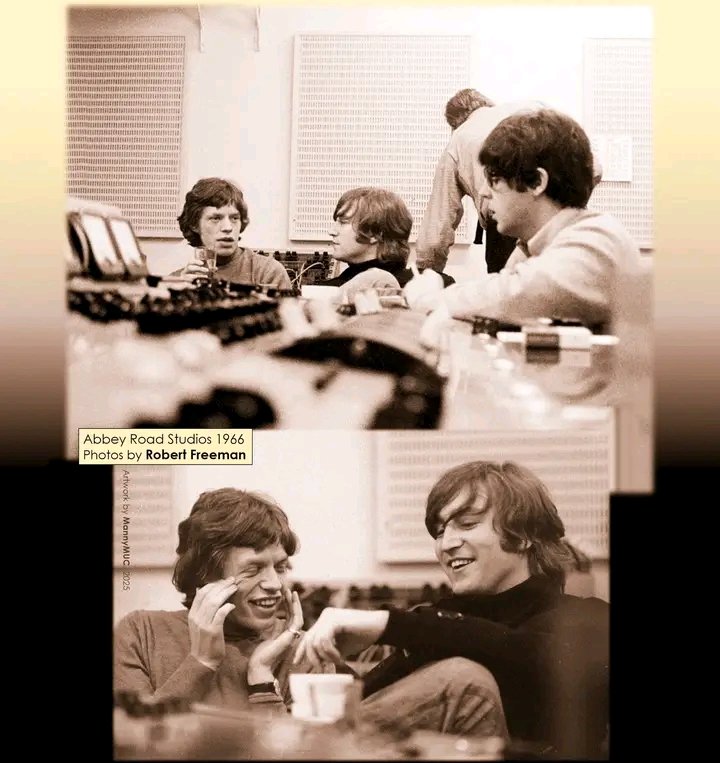“Superstar Mixing Session: Mick Jagger Visits the Beatles During ‘Revolver’ Recording at Abbey Road Studios, Joins John Lennon and Paul McCartney at the Iconic Mixing Console”
In the spring of 1966, as the Beatles were deep into the groundbreaking sessions for their album Revolver, the hallowed halls of Abbey Road Studios bore witness to an extraordinary moment of British rock history. Among the swirling creativity and sonic experimentation, a familiar figure stepped into Studio Three — Mick Jagger, charismatic frontman of the Rolling Stones. The visit wasn’t announced with fanfare, but those present recognized instantly that this quiet convergence of musical titans was something special.
Jagger, who shared a friendly rivalry and deep mutual respect with the Beatles, arrived as they were refining some of the album’s most complex mixes. At the heart of the room sat John Lennon and Paul McCartney, flanked by engineers and producer George Martin, pouring over the layers of vocals, tape loops, and backward guitar lines that would define the psychedelic edge of Revolver. Jagger, intrigued and attentive, took a seat beside Lennon and McCartney at the mixing console. The three icons exchanged ideas, laughs, and insights — a moment of casual camaraderie that echoed the collaborative spirit of the 1960s London music scene.
Though the Stones and Beatles followed different creative paths, their cross-pollination of ideas was well known. McCartney had already contributed backing vocals to the Stones’ “We Love You,” while Jagger had been present for moments of Beatle innovation before. But this particular session captured the growing divide between the Beatles’ studio-bound artistry and the Stones’ blues-driven stage energy. Jagger reportedly listened in awe as the Beatles worked on effects-laden tracks like “Tomorrow Never Knows,” which sounded like nothing anyone had attempted before. It was a glimpse into the future of rock, and even for Jagger — a visionary in his own right — the Beatles’ ambition left a powerful impression.
No photos or recordings officially documented the visit, but stories of Jagger’s presence during the Revolver sessions have circulated among insiders and historians for decades. It remains a compelling footnote in the legacy of Abbey Road — a quiet yet profound moment where the Beatles’ ever-expanding sonic universe welcomed a fellow traveler, one who would soon lead his own band into new creative frontiers. As Lennon adjusted knobs and McCartney leaned in with suggestions, Jagger sat back, observing the alchemy of a band on the verge of reinventing rock music — and perhaps carrying some of that energy with him back into the Stones’ orbit.
